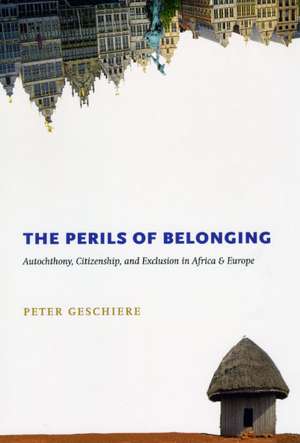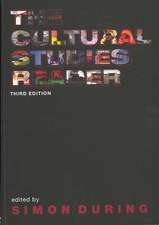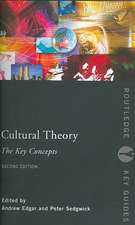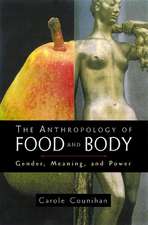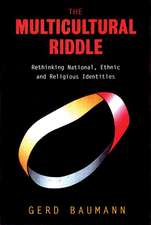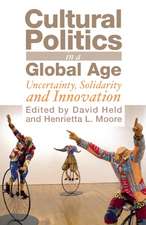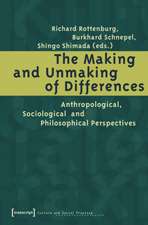The Perils of Belonging: Autochthony, Citizenship, and Exclusion in Africa and Europe
Autor Peter Geschiereen Limba Engleză Paperback – mai 2009
Despite being told that we now live in a cosmopolitan world, more and more people have begun to assert their identities in ways that are deeply rooted in the local. These claims of autochthony—meaning “born from the soil”—seek to establish an irrefutable, primordial right to belong and are often employed in politically charged attempts to exclude outsiders. In The Perils of Belonging, Peter Geschiere traces the concept of autochthony back to the classical period and incisively explores the idea in two very different contexts: Cameroon and the Netherlands.
In both countries, the momentous economic and political changes following the end of the cold war fostered anxiety over migration. For Cameroonians, the question of who belongs where rises to the fore in political struggles between different tribes, while the Dutch invoke autochthony in fierce debates over the integration of immigrants. This fascinating comparative perspective allows Geschiere to examine the emotional appeal of autochthony—as well as its dubious historical basis—and to shed light on a range of important issues, such as multiculturalism, national citizenship, and migration.
In both countries, the momentous economic and political changes following the end of the cold war fostered anxiety over migration. For Cameroonians, the question of who belongs where rises to the fore in political struggles between different tribes, while the Dutch invoke autochthony in fierce debates over the integration of immigrants. This fascinating comparative perspective allows Geschiere to examine the emotional appeal of autochthony—as well as its dubious historical basis—and to shed light on a range of important issues, such as multiculturalism, national citizenship, and migration.
| Toate formatele și edițiile | Preț | Express |
|---|---|---|
| Paperback (1) | 260.44 lei 6-8 săpt. | |
| University of Chicago Press – mai 2009 | 260.44 lei 6-8 săpt. | |
| Hardback (1) | 564.47 lei 3-5 săpt. | +22.98 lei 6-10 zile |
| University of Chicago Press – mai 2009 | 564.47 lei 3-5 săpt. | +22.98 lei 6-10 zile |
Preț: 260.44 lei
Nou
Puncte Express: 391
Preț estimativ în valută:
49.83€ • 54.30$ • 41.99£
49.83€ • 54.30$ • 41.99£
Carte tipărită la comandă
Livrare economică 23 aprilie-07 mai
Preluare comenzi: 021 569.72.76
Specificații
ISBN-13: 9780226289656
ISBN-10: 0226289656
Pagini: 304
Ilustrații: 1 table
Dimensiuni: 152 x 229 x 18 mm
Greutate: 0.4 kg
Editura: University of Chicago Press
Colecția University of Chicago Press
ISBN-10: 0226289656
Pagini: 304
Ilustrații: 1 table
Dimensiuni: 152 x 229 x 18 mm
Greutate: 0.4 kg
Editura: University of Chicago Press
Colecția University of Chicago Press
Notă biografică
Peter Geschiere is professor of African anthropology at the University of Amsterdam and the author of The Modernity of Witchcraft: Politics and the Occult in Postcolonial Africa.
Cuprins
Preface and Acknowledgments
1 Introduction: Autochthony—the Flip Side of Globalization?
A Primordial yet Global Form of Belonging?
Autochthony’s Genealogy: Some Elements
Autochthony Now: Globalization and the Neoliberal Turn
Autochthony and the Tenacity of the Nation-State
Historical Construction, Political Manipulation and Emotional Power
Approach: From Identity to Subjectivation and Aesthetics
Plan of the Book
2 Cameroon: Autochthony, Democratization ,and New Struggles over Citizenship
Belonging to a Nonexistent Province
Elite Associations and Autochthony: Different Degrees of Citizenship?
The “Sea People” Protected by the New Constitution
Debates in the Cameroonian Press
Autochthony’s “Naturalness”: The Funeral as a Final Test for Belonging
A Tortuous History
An Empty Discourse with Segmentary Implications
Conclusion
3 Cameroon: Decentralization and Belonging
The East and the New Importance of the Forest
The New Forest Law
Participation in Practice
The Elusive Community
The Community as Stakeholder: Belonging and Exclusion
Village or Grande Famille?
The Halfhearted Belonging of the External Elites
Discovering Allogènes at Ever Closer Range
Conclusion
4 African Trajectories
Ivory Coast: Identification and Exclusion
Elsewhere in Africa
“Pygmy” Predicaments: Can Only Citizens Qualify as Autochthons?
5 Autochthony in Europe: The Dutch Turn
The Dutch Switch: From Multiculturalism to Cultural Integration
Overview: How the Netherlands Became an “Immigration Country”
National Consensus and Its History—the Dutch Way
Alternative Solutions
A More Forceful Integration
Allochtonen: A New Term on the Dutch Scene
Elusive Autochthony
History and Culture
Comparisons
6 Cameroon: Nation-Building and Autochthony as Processes of Subjectivation
Nation-Building as an Everyday Reality
Rituals of Belonging: The Funeral at Home as a Celebration of Autochthony
7 Epilogue: Can the Land Lie? Autochthony’s Uncertainties in Africa and Europe
Varying Patterns of Nation-Building in Africa and Their Implications
Autochthony and the Search for Ritual in Europe
Notes
Bibliography
Index
1 Introduction: Autochthony—the Flip Side of Globalization?
A Primordial yet Global Form of Belonging?
Autochthony’s Genealogy: Some Elements
Autochthony Now: Globalization and the Neoliberal Turn
Autochthony and the Tenacity of the Nation-State
Historical Construction, Political Manipulation and Emotional Power
Approach: From Identity to Subjectivation and Aesthetics
Plan of the Book
2 Cameroon: Autochthony, Democratization ,and New Struggles over Citizenship
Belonging to a Nonexistent Province
Elite Associations and Autochthony: Different Degrees of Citizenship?
The “Sea People” Protected by the New Constitution
Debates in the Cameroonian Press
Autochthony’s “Naturalness”: The Funeral as a Final Test for Belonging
A Tortuous History
An Empty Discourse with Segmentary Implications
Conclusion
3 Cameroon: Decentralization and Belonging
The East and the New Importance of the Forest
The New Forest Law
Participation in Practice
The Elusive Community
The Community as Stakeholder: Belonging and Exclusion
Village or Grande Famille?
The Halfhearted Belonging of the External Elites
Discovering Allogènes at Ever Closer Range
Conclusion
4 African Trajectories
Ivory Coast: Identification and Exclusion
Elsewhere in Africa
“Pygmy” Predicaments: Can Only Citizens Qualify as Autochthons?
5 Autochthony in Europe: The Dutch Turn
The Dutch Switch: From Multiculturalism to Cultural Integration
Overview: How the Netherlands Became an “Immigration Country”
National Consensus and Its History—the Dutch Way
Alternative Solutions
A More Forceful Integration
Allochtonen: A New Term on the Dutch Scene
Elusive Autochthony
History and Culture
Comparisons
6 Cameroon: Nation-Building and Autochthony as Processes of Subjectivation
Nation-Building as an Everyday Reality
Rituals of Belonging: The Funeral at Home as a Celebration of Autochthony
7 Epilogue: Can the Land Lie? Autochthony’s Uncertainties in Africa and Europe
Varying Patterns of Nation-Building in Africa and Their Implications
Autochthony and the Search for Ritual in Europe
Notes
Bibliography
Index
Recenzii
“This is an ambitious, astute, and timely effort to address one of the most interesting and potentially troubling trends in our contemporary world, namely, the rise of politically charged passions about belonging. Geschiere’s judicious and incisive analysis offers a model of how an academic investigation can shed light on a major global problem.”
“Peter Geschiere’s new book is a powerful and sustained investigation of claims to ‘original’ belonging, the multiple and shifting grounds on which these may be made, and the exclusivist and often destructive politics to which they have given rise. As such, it is a subtle and sensitive ode to the migrant that is in all of us, however early our settlement in particular climes and places, and to the ‘stranger’ that any of us might become in troubled political contexts.”
“In this theoretically stimulating book, Geschiere queries the discourse of autochthony as it has emerged in African contexts (chiefly Cameroon) and Europe (chiefly the Netherlands and Flanders). . . . [He] offers an intriguing assessment of the unintended consequences of forms of local empowerment that seek to bypass the state as prompting xenophobic and potentially violent results.”—Choice
